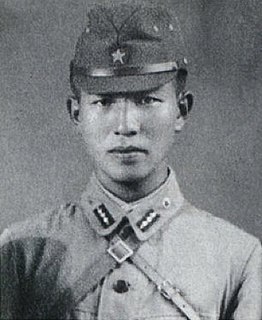A Quote by Jennifer Weiner
As many times as I told her she was beautiful, I know that she never believed me. As many times as I said it didn’t matter, I knew that to her it did.
Related Quotes
He took her in his arms right away. "I'm so sorry," he murmured in her ear. He rocked her, saying it over and over. But no matter how many times he said it, no matter how much she knew he meant it, the words stirred around in her ear but didn't get into her brain. Sometimes he could comfort her. Sometimes he said what she needed, but today he couldn't reach her. Nothing could.
Though she hated to stop kissing, Luce held Daniel's warm face in her hands. She gazed into his violet eyes, trying to draw strength. "I'm sorry," she said. "For running off like I did." "Don't be," he said,slowly and with absolute sincerity. "You had to go. It was preordained; it had to happen." He smiled again. "We did what we needed to do,Lucinda." A jet of warmth shot through her,making her dizzy. "I was starting to think I'd never see you again." "How many times have I told you that I will always find you?
Tessa had begun to tremble. This is what she had always wanted someone to say. What she had always, in the darkest corner of her heart, wanted Will to say. Will, the boy who loved the same books she did, the same poetry she did, who made her laugh even when she was furious. And here he was standing in front of her, telling her he loved the words of her heart, the shape of her soul. Telling her something she had never imagined anyone would ever tell her. Telling her something she would never be told again, not in this way. And not by him. And it did not matter. "It's too late", she said.
She realized how many of her beliefs were either unrealistic or belonged to her deceased parents and her ex-husband. She also realized that her expectations for herself and others were sometimes too rigid. She was trying to live up to what everyone else said was best for her, which made her depressed and hard to be around at times. Once she changed her beliefs about herself and others, she began to smile more and enjoy life.
She was beautiful, but not like those girls in the magazines. She was beautiful, for the way she thought. She was beautiful, for the sparkle in her eyes when she talked about something she loved. She was beautiful, for her ability to make other people smile, even if she was sad. No, she wasn't beautiful for something as temporary as her looks. She was beautiful, deep down to her soul. She is beautiful.
I met [my editor] in a bar where alcoholic beverages are served and I bought her one and I told her the idea. And she said that she liked it very much, which embarrassed me because I thought it meant that she was a lightweight and that in the morning, as so many women say to so many men, what seems like a good idea, you know, turns out not to be.
I love my mother for all the times she said absolutely nothing.... Thinking back on it all, it must have been the most difficult part of mothering she ever had to do: knowing the outcome, yet feeling she had no right to keep me from charting my own path. I thank her for all her virtues, but mostly for never once having said, "I told you so.
She didn’t understand why it was happening,” he said. “I had to tell her she would die. Her social worker said I had to tell her. I had to tell her she would die, so I told her she was going to heaven. She asked if I would be there, and I said that I would not, not yet. But eventually, she said, and I promised that yes, of course, very soon. And I told her that in the meantime we had great family up there that would take care of her. And she asked me when I would be there, and I told her soon. Twenty-two years ago.
Yet there were times when he did love her with all the kindness she demanded, and how was she to know what were those times? Alone she raged against his cheerfulness and put herself at the mercy of her own love and longed to be free of it because it made her less than he and dependent on him. But how could she be free of chains she had put upon herself? Her soul was all tempest. The dreams she had once had of her life were dead. She was in prison in the house. And yet who was her jailer except herself?
"She (Minnie Ruth Solomon) was unusual because even though I knew her family was as poor as ours, nothing she said or did seemed touched by that. Or by prejudice. Or by anything the world said or did. It was as if she had something inside her that somehow made all that not count. I fell in love with her some the first time we ever talked, and a little bit more every time after that until I thought I couldn't love her more than I did. And when I felt that way, I asked her to marry me . . . and she said she would."
In many poor countries, if the daughter is told who she's going to marry, and told that she's going to live in the village with her husband's family, she really has very little opportunity to make her own decisions. If she comes for a while to work in a factory, she has her own money. In family agriculture, it's never your money. It's whatever somebody decides to give you. For many people this is tremendously valuable, because then they can step up.
She came into a room; she stood, as he had often seen her, in a doorway with lots of people round her. But it was Clarissa one remembered. Not that she was striking; not beautiful at all; there was nothing picturesque about her; she never said anything specially clever; there she was however; there she was.






































